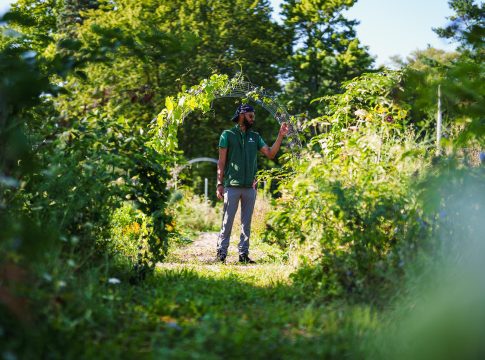The Potato Revolution: Futuristic Farming Starts with Diploid Dreams
Imagine a world where the versatile potato—a staple adored across continents—gets a vibrant upgrade. Say goodbye to tedious traditional breeding methods and hello to a revolutionary approach that promises to feed the world more efficiently. Meet Professor David Douches, who’s shaking up the agricultural landscape one diploid potato at a time!
The Magic of Diploid Potatoes
Forget the old-school tetraploid potatoes (those four-set chromosome wonders). Douches, with the support of Project GREEEN, is pivoting to diploid potatoes (just two sets), making breeding simpler and more effective. This process isn’t just about cutting corners—it’s about creating robust potatoes faster, paving the way for traits like:
- Pest Resistance: Say goodbye to those pesky bugs that ruin your harvest!
- Higher Yields: More potatoes on your plate? Yes, please!
- Improved Quality: Fluffier mashed potatoes and crispy fries are just a genetic tweak away.
With diploid potatoes now able to self-pollinate, farmers will have better stock in the ground sooner than ever, delighting potato lovers everywhere.
Feeding the Future
Why should this matter to you? The stakes are high for every household as Douches emphasizes that “the potato is just behind rice and wheat for global food staples.” With hope for restored funding after an unfortunate cut from the U.S. Agency for International Development, the essence of supporting worldwide potato production remains crucial.
Just picture this: fresh, nutritious potatoes grown sustainably. This thriving innovation means families can enjoy healthier meals, regardless of where they call home.
Sustainable Farming’s New Frontier
Meanwhile, the W.K. Kellogg Biological Station (KBS) isn’t stopping with potatoes. They are teaming up with farmers through the U.S. Department of Agriculture’s Long-Term Agroecosystem Research Network to tackle bigger agricultural challenges while preserving our precious planet.
By marrying science and hands-on experience, KBS is on a mission to explore eco-friendly farming practices that sustain soil health and water purity while maximizing yield.
The Future of Farming
The vision of farmers like Marc Hasenick, who partners with KBS, underscores the beauty of diverse farming systems that nurture both crops and the environment. It’s a win-win: a tapestry of ecosystem conservation and food production that tantalizes not just the stomach but the ethical conscience.
Join the Movement
So, how can you be part of this potato revolution? Look for locally sourced potatoes, dive into recipes that showcase their versatility—think creamy potato gratins, zesty potato salads, or simply roasted rounds sprinkled with herbs.
As scientists and farmers collaborate to carve out sustainable solutions, the potato’s delightful potential will surely be on every dinner table. Let’s embrace these innovative efforts—from diploid breeding breakthroughs to environmentally conscious farming—and make sure that the humble potato remains a vibrant part of our meals for generations to come!
In Summary:
- Diploid potatoes are simplifying breeding, yielding faster, better options.
- Aiming for pest resistance and improved quality, this potato revolution is crucial for food sustainability.
- KBS’s collaboration with farmers aims for eco-friendly, productive farming practices.
- Support local agriculture and enjoy the delicious versatility of potatoes in your cooking!
Taste the future—one potato at a time!

Covers wellness, nutrition, mental health, and daily life tips.
Bio: Talia brings a background in health journalism and holistic living to help readers live better, one tip at a time.

